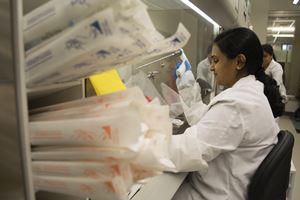 Induced Pluripotent Stem Cell (iPSC) isogenic controls for various heritable diseases are available through the National Institute for General Medical Sciences’ Human Genetic Cell Repository at the Coriell Institute for Medical Research.
Induced Pluripotent Stem Cell (iPSC) isogenic controls for various heritable diseases are available through the National Institute for General Medical Sciences’ Human Genetic Cell Repository at the Coriell Institute for Medical Research.
These lines were created using cutting-edge CRISPR-Cas9 genome-editing technology to introduce sequence-targeted variations in established, well-characterized cell lines, thus developing and making available highly-specific research tools to the biomedical research community.
Researchers can use these techniques to create a second isogenic cell line in either direction, such as:
Isogenic cell line controls are a powerful tool to study a variety of biological mechanisms of disease, including:
Coriell offers a number of isogenic pairs of cell lines (which differ on the level of a single allele) for several disease-specific samples that are available from the NIGMS Repository. Coriell is also currently developing a pipeline to edit iPSC lines and increase the offerings of isogenic controls from the NIGMS Repository.
Our current offerings of gene-edited iPSCs and isogenic controls are available here.